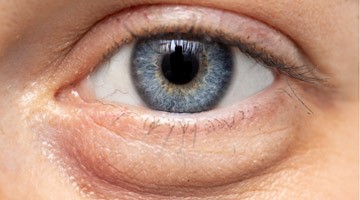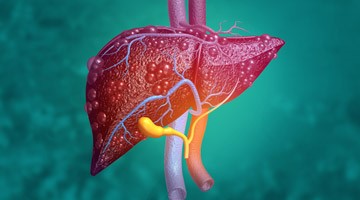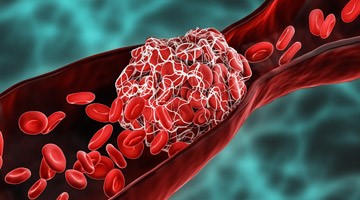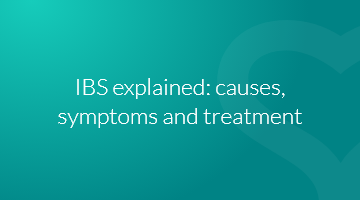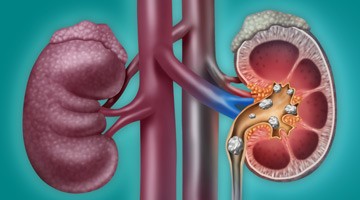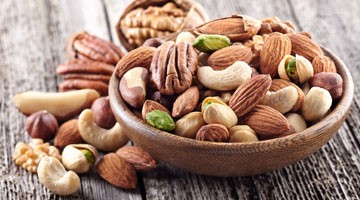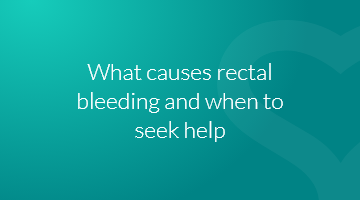General health
From gallstones and hernias to varicose veins and digestive problems, our Spire experts provide insight and knowledge for a range of health conditions.
General health articles
Mythbusting varicose veins: symptoms, causes and treatments
Varicose veins affect up to 20% of men and up to a third of women in the UK.
Read moreHow to manage your eyelid bags: home remedies and surgery
Getting older brings a host of changes to our bodies, including our eyelids.
Read moreHow sleep deprivation affects your body and health
Sleep deprivation refers to not getting enough good quality sleep.
Read moreThe outlook for liver cirrhosis
Liver cirrhosis refers to severe scarring of the liver.
Read moreHow alcohol can affect your liver
Drinking excessive amounts of alcohol can have both short and long-term effects on your health and wellbeing.
Read moreWhat you need to know about allergic rhinitis (hay fever)
Allergic rhinitis (hay fever) affects around one in four UK adults and is becoming increasingly common.
Read moreShould I be concerned about nipple discharge?
Nipple discharge refers to fluid that leaks out of the nipple when you are not breastfeeding.
Read moreWhat causes loss of smell and taste?
Your ability to smell and taste are closely linked as taste and smell information are carried to the same part of your brain.
Read moreThe best foods to help improve your digestive system
The digestive system breaks down the food you eat, allowing your body to absorb the energy and nutrients it contains.
Read moreHow to get rid of piles
Piles, also known as haemorrhoids, are swellings that develop inside your back passage (rectum) or around your bottom (anus).
Read moreHernia surgery: when you need it, how it has changed and what to expect
Over 120,000 hernia operations are performed every year in the UK, making it the most common surgery nationwide.
Read moreHernia surgery: David's story
When David found out he had a hernia, he was worried what this meant for his love of boxing.
View videoBlood clots: symptoms, diagnosis and treatment explained
Your blood’s clotting ability is important to help stop excessive and potentially dangerous bleeding when a blood vessel is injured.
Read moreWhat's the difference between a cold and the flu?
A sore throat, cough and runny nose are symptoms most people recognise as having a cold or the flu.
Read moreIBS explained: causes, symptoms and treatment
IBS or irritable bowel syndrome is a common, chronic (long-term) condition that affects your large intestine.
Read moreWhat are kidney stones and how are they treated?
Kidney stones are fairly common and affect around one in 10 people in the UK.
Read moreHow to boost your iron levels to treat iron deficiency anaemia
Iron is essential for almost every aspect of your health. This is because it is a critical part of your blood, which contains haemoglobin.
Read moreUnderstanding heartburn: symptoms, causes and treatment
Heartburn is a common condition and refers to a burning sensation in your upper chest, specifically, behind or just below your breastbone.
Read moreGallstones symptoms and causes explained
Gallstones are a fairly common condition that affects an estimated one in 10 adults in the UK.
Read moreWhat causes rectal bleeding and when to seek help
Rectal bleeding refers to passing blood through your back passage (rectum).
Read more
Select from our range of available general surgery treatments
- Acid reflux (Stretta)
- Barium enema
- Barium swallow and barium meal
- Bowel surgery, colostomy and ileostomy
- Colonoscopy
- Craniotomy (brain surgery)
- Flexible sigmoidoscopy
- Gallbladder / gallstone removal (cholecystectomy)
- Gastroscopy
- Haemorrhoids removal treatment
- Hernia surgery
- Ingrown toenail surgery
- Mastectomy
- Laparoscopy investigation and treatment
- Liver surgery
- Neck lumps
- Surgery for anal fistula
- Surgery for anal warts
- Thyroidectomy surgery
- Varicose vein treatment
All treatments
Hide A-Z listA A:
- Abdominal hysterectomy
- Abdominal pain
- Ablation of arrhythmia
- Acid reflux (Stretta)
- Acne
- Acne
- Acupuncture
- Age-related macular degeneration
- Age-related macular degeneration treatment
- Allergy and infectious diseases
- Allergy testing
- AlterG treadmill
- Anaemia
- Anal abscess
- Anal bleeding
- Anal discharge
- Anal fissure
- Anal fistula
- Anal pain
- Angina
- Ankle arthroscopy
- Ankle replacement
- Ankylosing spondylitis
- Anterior cruciate ligament injury
- Anti-wrinkle treatment by injection
- Aortic valve replacement
- Aquablation® therapy
- Arm reduction and arm lift
- Arrhythmia
- Arthritis
- Arthroscopy
- Articular cartilage repair
- Asthma
- Asthma
B B:
- Back pain
- Back pain investigations (discography)
- Back surgery (spinal surgery)
- Bad breath
- Baker's cyst
- Balloon kyphoplasty
- Balloon sinuplasty for chronic sinusitis
- Bariatric surgery
- Barium enema
- Barium swallow and barium meal
- Benign prostate treatments
- Birthmarks
- Bladder cancer
- Bladder investigations (cystoscopy)
- Bladder lesion removal
- Blood clot or thrombosis test
- Blood disorder test
- Blood in urine
- Blood pressure test
- Blood tests
- Blood tests for heart disease risk (cardiac testing)
- Blood type or blood group test
- Blurred vision
- Body Movement Therapy
- Bone density scan for osteoporosis
- Bones and joints
- Boob job
- Botulinum toxin injection for back pain
- Bowel cancer
- Bowel disorder test
- Bowel incontinence
- Bowel surgery, colostomy and ileostomy
- Bowel treatments
- Brain tumour
- Bravo pH monitoring
- Breast augmentation
- Breast cancer
- Breast cancer genetic test (BRCA 1 & 2 genetic testing)
- Breast enhancement
- Breast enlargement
- Breast health risk assessment
- Breast implant removal
- Breast implants
- Breast lift
- Breast lump investigation
- Breast lump removal
- Breast reconstruction following mastectomy
- Breast reduction
- Breast screening and surgery
- Breast uplift (mastopexy)
- Breathlessness
- Broken nose
- Bronchoscopy
- Brow lift surgery
- Bunion removal and treatment
- Bunions
- Bursitis
C C:
- Cancer investigations and treatments
- Cancer tests
- Capsule endoscopy
- Cardiac catheterisation
- Cardiac CT scan (heart CT)
- Cardiac electrophysiology
- Cardiac MRI scan (heart MRI)
- Cardiomemo recording
- Cardioversion heart rhythm treatment
- Carotid artery disease
- Carpal tunnel decompression
- Carpal tunnel release
- Carpal tunnel syndrome
- Carpal tunnel syndrome surgery
- Cataract removal surgery
- Cataracts
- Cerebral palsy
- Cervical cancer
- Cervical smears
- Chalazion (inner eyelid cyst) removal
- Cheek implants
- Chemical skin peels
- Chemosaturation therapy
- Chemotherapy
- Chest pain
- Chin implant
- Chlamydia
- Cholesterol level test
- Chronic fatigue
- Chronic pain management
- Circumcision
- Clinical Pilates
- Coeliac disease
- Colonoscopy
- Colposcopy
- Constipation
- Contact dermatitis
- Contrast echocardiogram
- Corneal cross-linking for keratoconus
- Coronary angioplasty
- Coronary artery bypass surgery (heart bypass)
- Coronary heart disease
- Corticosteroid injections
- Cosmetic fat transfer
- Cosmetic surgery
- Coughing
- Coughing up blood
- Craniotomy (brain surgery)
- Crepitus
- Crohn's disease
- Cruciate ligament surgery
- CT scan
- Cyst removal
D D:
- Dental implants
- Dental surgery
- Depression
- Dermaroller anti-wrinkle treatment
- Desensitisation immunotherapy
- Detached retina
- Diabetes
- Diabetes test
- Diabetic retinopathy
- Diarrhoea
- Dilatation and curettage
- Discectomy
- Dizziness
- Dobutamine stress echocardiogram
- Dry eye syndrome
- Duodenal switch weight loss surgery
- Dupuytren's contracture
- Dupuytren's contracture (palmar fasciectomy)
- Dysphagia
E E:
- Ear pinning (pinnaplasty)
- Ear, nose and throat
- Earwax removal
- ECG monitoring or event recorder - 24/48 hour
- Echocardiogram
- Eczema
- Eczema and dermatitis
- Electrocardiogram (ECG)
- Endometrial ablation surgery
- Endometriosis
- Endoscopic ultrasound
- Endothermal ablation
- Endovenous laser treatment
- Enlarged prostate
- Epididymal cysts removal
- Epidural injection
- Erectile dysfunction
- Erectile dysfunction (impotence) treatment
- Eustachian tube balloon dilatation
- Excessive sweating
- Excessive sweating (hyperhidrosis)
- Exercise electrocardiogram
- Extracorporeal shockwave therapy (ESWT)
- Eye surgery and treatments
- Eyelid cyst surgery
- Eyelid problems
- Eyelid ptosis
- Eyelid surgery or eyebag removal (blepharoplasty)
G G:
- Gait scanning and orthotics
- Gallbladder / gallstone removal (cholecystectomy)
- Gallstones
- Ganglion cyst
- Ganglion removal surgery
- Gastric balloon (weight loss balloon)
- Gastric band adjustment
- Gastric band surgery
- Gastric bypass surgery
- Gastric sleeve surgery (sleeve gastrectomy)
- Gastroenteritis
- Gastroenterology
- Gastro-oesophageal reflux disease
- Gastroscopy
- General medicine
- General surgery
- Genital warts
- Glaucoma
- Glaucoma
- Gout
- Grommets insertion (glue ear treatment)
H H:
- Haematology
- Haemorrhoids removal treatment
- Hair loss
- Hand surgery
- Hand therapy
- Headache
- Headache treatments
- Hearing loss
- Heart treatments
- Heart valve disease
- Heart valve replacement
- Heartburn
- Heavy periods
- Hernia surgery
- Hernioplasty
- Herniorrhaphy
- Herniotomy
- Herpes
- Hiatus hernia
- Hiccups
- High blood pressure
- High cholesterol
- High tibial osteotomy
- Hip and knee
- Hip arthroplasty
- Hip arthroscopy
- Hip fracture
- Hip pain
- Hip replacement surgery
- Hives
- Hormone test
- Hydrocele
- Hydrocele surgery
- Hydrocortisone injections
- Hydrotherapy
- Hyperbaric oxygen therapy
- Hypoglycaemia
- Hysterectomy surgery
- Hysteroscopy procedure
I I:
- Indigestion
- Infertility
- Ingrown toenail surgery
- Inguinal hernia
- Injection treatment for chronic migraines
- Intra-articular injections
- Inverted nipple surgery
- Iron, vitamin and mineral level tests
- Irregular periods
- Irritable bowel syndrome
- Irritated and dry skin
- Itchy anus
- Itchy genitals in women
- Itchy skin
L L:
- Labial reduction surgery (vaginal reshaping)
- Laminectomy
- Laparoscopic cholecystectomy
- Laparoscopic hysterectomy
- Laparoscopy investigation and treatment
- Laryngoscopy investigation
- Laser eye surgery
- Laser eye treatment (yag laser capsulotomy)
- Laser hair reduction
- Laser prostate surgery (HoLEP or GreenLight)
- Laser treatment for vascular birthmarks
- Laser treatments for lines and wrinkles
- Laser verruca treatment
- Lateral intercostal artery perforator (LICAP) flap breast reconstruction
- Leukaemia
- Ligation and stripping
- LINX system
- Lip augmentation
- Liposculpture to treat lines and wrinkles
- Liposuction
- Liposuction for men
- Liver and kidney test
- Liver cancer
- Liver disease
- Liver surgery
- Low sperm count
- Lumbar decompression
- Lung cancer
- Lupus
- Lyme disease
M M:
- Macular hole surgery
- Male breast reduction surgery (gynaecomastia)
- Mammogram (mammography)
- Manual Handling Training
- Mastectomy
- Mastopexy
- Medical admission
- Melanoma skin cancer
- Meniscal tear surgery
- Meniscus tear
- Men's health
- Microdermabrasion and dermabrasion
- Microdiscectomy
- Microsuction
- Microsurgical vasectomy reversal
- Migraines
- Mini facelift
- Mole, cyst, wart and skin tag removal
- Morton's neuroma
- Morton's neuroma excision
- MRI scan (magnetic resonance imaging scan)
- MSK Physiotherapy Services
- Multiple sclerosis
- MyKnee personalised knee replacement
- Myomectomy surgery
P P:
- Pacemaker implantation
- Paediatrics
- Pain during sex
- Pain management
- Pain management
- Pain management injections for back and facet joints
- Pain when urinating
- Palpitations
- Pancreatic cancer
- Partial gastrectomy
- Partial knee replacement (PKR)
- Patch testing
- Patello femoral replacement
- Patellofemoral replacement
- Pectoral implants (chest implants)
- Pectus carinatum
- Pectus excavatum (Nuss procedure)
- Pelvic organ prolapse
- Pelvic vein embolisation
- Percutaneous tibial nerve stimulation
- Perform rehabilitation
- Perform sports services
- Period pain
- PFO (hole in the heart) closure
- Phacoemulsification
- Photodynamic therapy (PDT)
- Phototherapy
- Physiotherapy
- Physiotherapy from Perform
- Physiotherapy from Spire
- Pilates Classes
- Piles
- Pins and needles
- Platelet rich plasma therapy (PRP)
- Podiatry
- Polycystic ovary syndrome
- Premenstrual syndrome
- Presbyopia
- Prostate artery embolisation (PAE)
- Prostate cancer
- Prostate cancer screening (PCA3 test)
- Prostate cancer treatment by high intensity focused ultrasound (HIFU)
- Prostate surgery and laser prostate surgery
- Prostatectomy
- Psoriasis
- Psoriasis skin treatment
R R:
- Radiofrequency ablation
- Radiotherapy
- Rapid Access Injury Clinic
- Refractive lens exchange surgery
- Respiratory medicine
- Retinal detachment surgery
- Reversal of female sterilisation
- Revision knee replacement
- Rheumatoid arthritis
- Rheumatology
- Rhizolysis spinal nerve pain treatment
- Rosacea
- Rotator cuff injury
- Rotator cuff repair
- Roux-en-Y bypass
S S:
- Sacral nerve stimulation (neuromodulation)
- Scans and investigations
- Scar revision
- Sciatica
- Scoliosis
- Scoliosis correction
- Seizure
- Selective internal radiotherapy treatment (SIRT)
- Sentinel lymph node biopsy and lymph node removal
- Septoplasty surgery
- Sexual health testing
- Shoulder arthroscopy
- Shoulder impingement
- Shoulder pain
- Shoulder replacement surgery
- Shoulder stabilisation
- Signature knee replacement
- Silhouette Soft non-surgical thread facelift
- Single-dose intraoperative radiotherapy (SD-IORT) for early stage breast cancer
- Sinus surgery (functional endoscopic sinus surgery or FESS)
- Skin treatments
- Sleep apnoea test
- Sleeve gastrectomy
- Slipped disc
- Snoring
- Snoring treatment
- Spinal cord stimulation
- Spinal decompression surgery
- Spinal fusion test
- Spinal stenosis
- Spinal surgery and treatments
- Spondylolisthesis
- Sports Injury Rehabilitation
- Sports Massage
- Sports science
- Sportsman's hernia or groin treatment
- Squint surgery
- Stem cell therapy
- Steroid injections
- Stomach cancer
- Stomach ulcer
- Stress electrocardiogram
- Stress urinary incontinence
- Stress urinary incontinence (SUI)
- Stress urinary incontinence (SUI) for women
- Stroke
- Surgery for anal fissure
- Surgery for anal fistula
- Surgery for anal warts
- Swallowable gastric balloon
- Swallowing difficulties (Dysphagia)
- Swollen abdomen
- Swollen glands
- Swollen joints
- Swollen knee
- Swollen testicles
T T:
- Tendonitis
- Tennis elbow
- Testicle pain
- Testicular cancer
- Testicular implants
- Thigh and buttock lift
- Thread vein treatment
- Thyroid test
- Thyroidectomy surgery
- Tinnitus
- Tomosynthesis
- Tongue tie
- Tonsillectomy and adenotonsillectomy for children
- Tonsillectomy for adults
- Total body lift
- Total knee replacement (TKR)
- Trabeculectomy
- Transarterial chemoembolisation (TACE)
- Transcatheter Aortic Valve Insertion (TAVI)
- Transoesophageal echocardiogram
- Transurethral prostatic resection
- Transurethral resection of the prostate (TURP)
- Treatment for malignant skin cancer
- Trigeminal neuralgia
- Trigger finger
- Trigger finger release
- Tummy tuck (abdominoplasty)
- Tummy tuck (abdominoplasty) for men
- TURP procedure or TURP surgery
- Type 1 diabetes
- Type 2 diabetes


